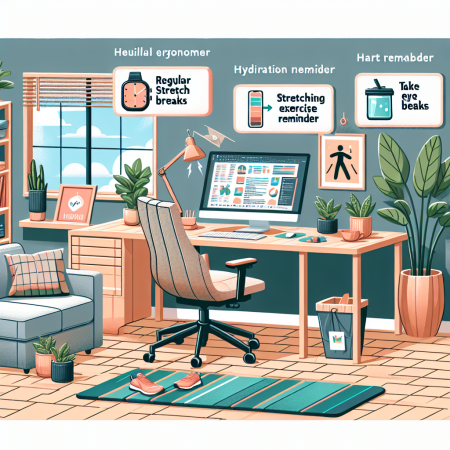How to Manage Remote Work Fatigue
Establish a Routine
One of the key strategies to manage remote work fatigue is to establish a daily routine. Setting a consistent schedule can help create a sense of normalcy and structure in your workday. Start by defining your work hours and breaks to maintain a healthy balance between work and personal life. Having a routine can also improve productivity as it signals to your brain when it’s time to focus and when it’s time to relax.
Include activities in your routine that promote physical and mental well-being, such as exercise, healthy meals, and relaxation techniques. A structured routine can reduce decision fatigue by eliminating the need to constantly make choices throughout the day. By following a set schedule, you can better manage your energy levels and avoid burnout.
Designate a Dedicated Workspace
Creating a dedicated workspace in your home can help separate your work life from your personal life. Designate a specific area where you can focus on your tasks without distractions. Ensure that your workspace is comfortable, well-lit, and organized to enhance your productivity and concentration levels. By having a designated workspace, you can mentally prepare yourself for work and signal to others that you are in work mode.
Avoid working from places associated with relaxation, such as your bed or couch, as this can blur the lines between work and rest. Having a dedicated workspace can improve your posture and reduce physical strain, contributing to your overall well-being during remote work.
Stay Connected with Colleagues
Remote work can sometimes feel isolating, leading to feelings of disconnection from your colleagues. To combat this, make an effort to stay connected with your team members through regular communication channels. Schedule virtual check-ins, video calls, or group chats to maintain a sense of camaraderie and collaboration. Sharing updates, ideas, and even casual conversations can help recreate the social interactions typically found in a physical office.
Consider organizing virtual team-building activities or informal meetings to foster a sense of community and support among your colleagues. By staying connected with your team, you can combat feelings of loneliness and isolation, leading to a more positive remote work experience.
Take Regular Breaks
It’s essential to prioritize taking regular breaks throughout your workday to prevent burnout and maintain focus. Incorporate short breaks into your schedule to rest your eyes, stretch your muscles, and clear your mind. Breaks can help improve your concentration and productivity by allowing you to recharge and refresh your cognitive abilities.
Use break times to step away from your workspace, grab a healthy snack, or engage in a quick physical activity. Avoid the temptation to work through lunch or push yourself to the point of exhaustion. By incorporating regular breaks into your remote work routine, you can improve your overall well-being and sustain a healthy work-life balance.
Practice Self-Care
Self-care plays a crucial role in managing remote work fatigue and maintaining your overall well-being. Make time for activities that bring you joy, relaxation, and fulfillment outside of work hours. Engage in hobbies, exercise, meditation, or any other self-care practices that help you destress and rejuvenate.
Prioritize getting an adequate amount of sleep, eating nutritious meals, and engaging in activities that nourish your body and mind. Remember to set boundaries between work and personal time to avoid overworking yourself. By practicing self-care, you can effectively manage stress, improve your mental health, and enhance your resilience in the face of remote work challenges.
Related Content
- How To Use Multimedia to Enhance Your Online Coaching Presence
- The Role of Accountability in Your Online Coaching Programs
- Highlight tangible benefits through before-and-after comparisons that prove impact
- Achieve sustainable revenue growth by embracing tiered membership structures in 2025
- How I Made My First $100K Using Only Organic Marketing

